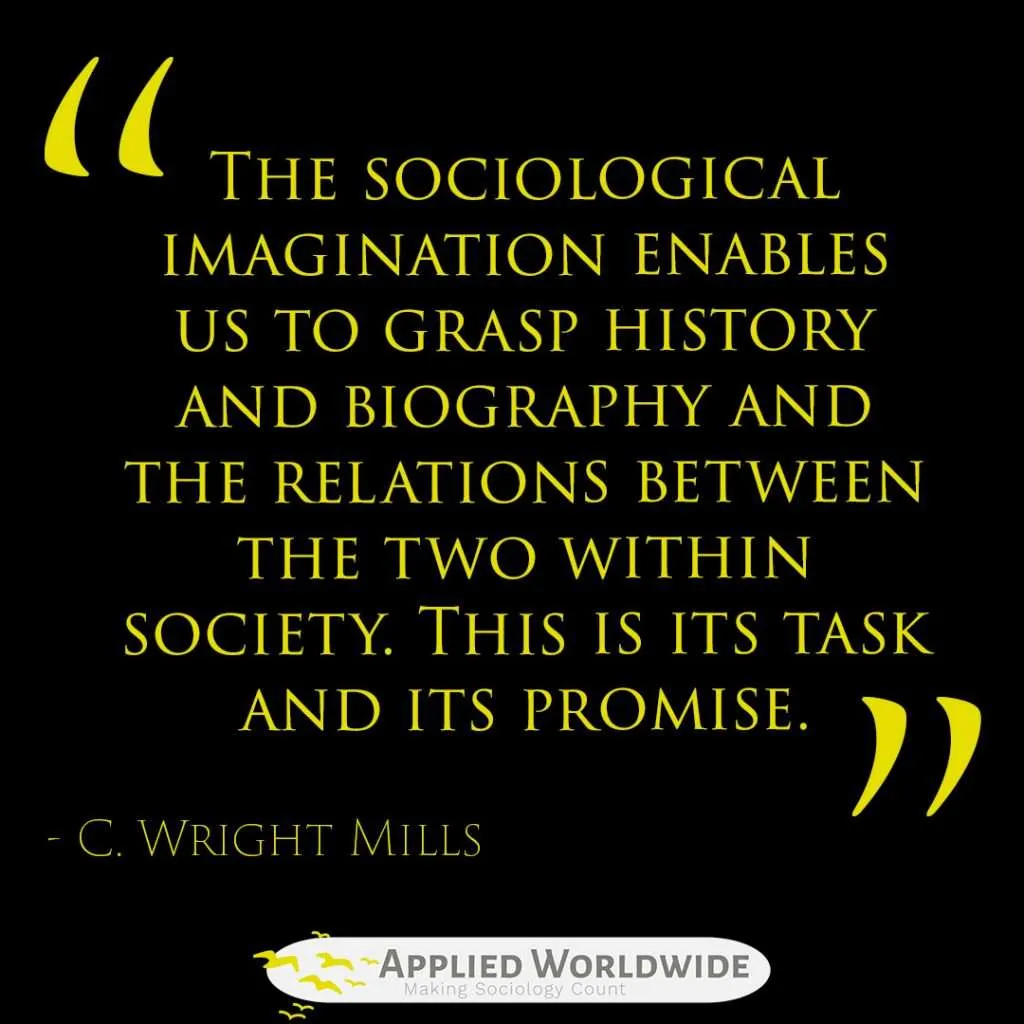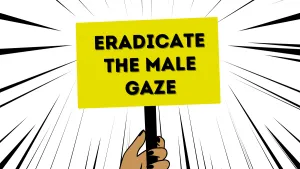Sociological Imagination and C. Wright Mills
As it was succinctly said by Pierre Bourdieu: “The function of sociology, as of every science, is to reveal that which is hidden.” This can be no further away from the obvious having the sociological imagination in place with the publication of The Sociological Imagination in 1959 by the American sociologist, C. Wright Mills. So, how can we apply the concept of a sociological imagination of unemployment?
What is the Sociological Imagination?
The Sociological Imagination was published by the famous Oxford University Press as part of its sociological aims to promote research and interest in the sociology field of Studies. In the book, the famous C. Wright Mills developed the idea of sociological imagination, the means by which the relation between self and society can be understood in a wider format.

Not only was Mills the first to create the concept of sociological imagination and named that term also, but in 1998 the International Sociological Association listed the book as the second most important sociological book of the 20th century. For a more clearer understanding, The Sociological Imagination can be perused as the imperative use of imaginative thought to understand the relationship between the individual (personal troubles) and the broader workings of society (public issues).
That is, it enables the groundbreaking understanding of “the larger historical scene in terms of its meaning for the inner life and the external career of a variety of individuals.” According to C. Wright Mills in his book The Sociological Imagination, he believed in the power of the sociological imagination to connect personal troubles to public issues. There are an avalanche of examples of the Sociological Imagination, but for clarity purpose, sticking to the most common examples is imperative.
The Sociological Imagination of Unemployment
In a vivid explanation, unemployment is a term referring to individuals who are employable and actively seeking a job but are unable to find a job. Included in this group are those people in the workforce who are working but do not have an appropriate job. Without a tint of doubt, unemployment can be regarded as a public issue. This is because, there are various reasons people are unemployed in the society ranging from lack of education, which is indeed the key cause of employment.
Also, people drop out school for various reasons, which is another indicator of unemployment. It is critical that most people cannot afford to study at higher institutions since it requires a lot of finance, can be for meal, accommodation and transport. Therefore, an individual facing unemployment might feel discouraged and let down.
In the face of this, it is pertinent that unemployment leads people into crime in order to make a living, crime like drug trafficking, prostitution and domestic violence, which in turn affects the public. Therefore taking into cognisance unemployment as a key example of the Sociological Imagination, we will understand the effectivity of C. Wright Mills’ stance on believing that every problem faced by an person in the society has roots in society as a whole and is faced by many others also.
The Sociological Imagination Of Everyday Lives
As it is made clear by sociologists on the Sociological Imagination of our everyday lives, in order to make sense of the purpose of our everyday lives and our place in society, we do participate in a concept called the sociological imagination, which demonstrates that as soon as we start to think about various issues or activities in perspectives that differ from own own, we’re entering the realm of the sociological imagination of our everyday lives.
For example, everyday behaviors of ours that can be viewed using the sociological imagination technique include exercising, watching TV or owning a pet., since in our everyday lives, many individuals go through one or more social problems personally.
To take an example, numerous people are poor and unemployed. Also, many are in poor health, and many have family problems, drink too much alcohol, or commit crime. When we hear about these individuals’ experience, it is very easy for us as a society to think that their problems are theirs alone, and that they and other individuals with the same problems are entirely to blame for their difficulties.
But considering the sociological imagination of our everyday lives, we can take a different approach, as it stresses that individual problems are often rooted in problems stemming from aspects of society itself. That is, what is private of others, is indeed public and has direct impact on other people’s lives.
Concluding Thoughts
Having these two examples in view, this to a larger extent shows to us that “neither the life of an individual nor the history of a society can be understood without understanding both” of them, the private and the public. As said by Mills in his definition of the Sociological Imagination, “the awareness of the relationship between personal experience and the wider society.”
This can be no farther away from the truth as it justifiably stated the juxtaposition of the inner, that is the private, and the outward, that is the public, which inevitably plays critical role in the formation of sociology—and, as we know, sociology is about our society, as is the Sociological Imagination.







